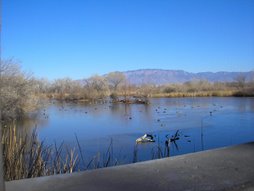Julene Bair visits her family's now defunct farm and sees the blade of the windmill that used to pump their well lying on the ground. She reflects on her family's use of water from the Ogallala aquifer, its declining water levels, and the economy we have built upon the semi-arid land. She notes that Ogallala means something like "She poured out her own," an apt name for an aquifer that is being mined. She writes,
"Without a spiritual tradition that recognizes the balance of nature and holds it sacred, our relationship to the land and its bounty is like a child's in a candy store with no adult present to restrain us from gorging. We don't identify ourselves as natives of ecosystems bounded by natural limits of land and climate but as citizens of countries, states, and counties, and as owners of farms, places demarcated by lines on maps. We conduct ourselves within an economy that depends on the depletion and degradation of the real things--plants, animals, soils, air, water--that sustain us." (p.90)
From "She Poured Out Her Own," Julene Bair, Home Land, Ranching and a West that Works, Laura Pritchett, Richard L. Knight, and Jeff Lee, eds.
Subscribe to:
Post Comments (Atom)

No comments:
Post a Comment